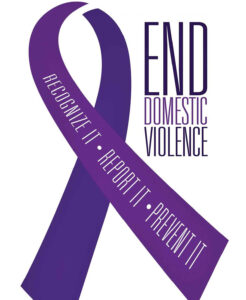
Did you know that if an abuser is stalking someone who has sought help at a domestic violence center, there is nothing law enforcement in Florida can do to stop the harassment?
Proposed legislation may soon give law enforcement a tool to take action. Senate Bill 120 would protect domestic violence and stalking victims. Sponsor United States Sen. Amy Klobuchar, a Democrat from Minnesota, introduced the bill on Jan. 15, 2019.
Florida is one of 19 states that require the location of domestic safe houses or shelters to be confidential. However, it is also one of 11 nationally with no penalties for disclosure by someone other than a shelter employee. Emily Mitchem, executive director of Refuge House, said: “We’ve had continuous problems over the years with abusers, their friends, and even their family finding out where the shelter is located, and essentially stalking the victims outside the shelter, waiting for them to leave.”
The legislation would make it a misdemeanor if convicted of disclosing information about where a shelter is located. A second offense would be a felony. According to the National Coalition Against Domestic Violence fact sheet, on average nearly 20 people per minute are physically abused by an intimate partner in the United States. During one year, this equates to more than 10 million women and men; that is 1 in 4 women, and 1 in 9 men. Nearly half of all female homicide victims are killed by a current or former dating partner, according to a 2017 study by the U.S. Centers for Disease Control and Prevention. Black women in the U.S. are twice as likely as white women to be fatally shot by an intimate partner, gun control advocates say, and young Black women are almost three times more likely to be shot and killed by an intimate partner than white women in the same age group.
More than 12 million men and women every year are victims of rape, physical violence or stalking by an intimate partner in the United States, according to the National Domestic Violence Hotline. In 2020, the hotline reported that calls in March increased by six percent compared to 2019. By the end of 2020 there was an increase of 20 percent of intimate partner violence cases, or 15 million additional ones.
“Multiple domestic centers in Florida have reported drones flying over the confidential shelter, recording the video and publishing the confidential information online,” state Senator Ileana Garcia, who is sponsoring the bill, said.
The legislation has already gotten tentative approval in the Senate and the final vote has yet to be taken. A second bill would also protect the staff’s identity, due to a domestic staff worker being followed to their car and being forced to give information about their clients. According to bill sponsor Rep. David Borrero: “I think it will be a really helpful tool for law enforcement because right now they have no way to discourage or stop that type of behavior.”
The legislation could also face a First Amendment challenge. If so, the state would have to prove there was a compelling interest in protecting survivors’ identities. A first offense for disclosing the information could result in someone being sentenced to a year in jail and a $1,000 fine. A second offense could result in a five-year sentence and a $5,000 fine.
There are local and national resources, including the National Domestic Violence Hotline 1-800-799-7233